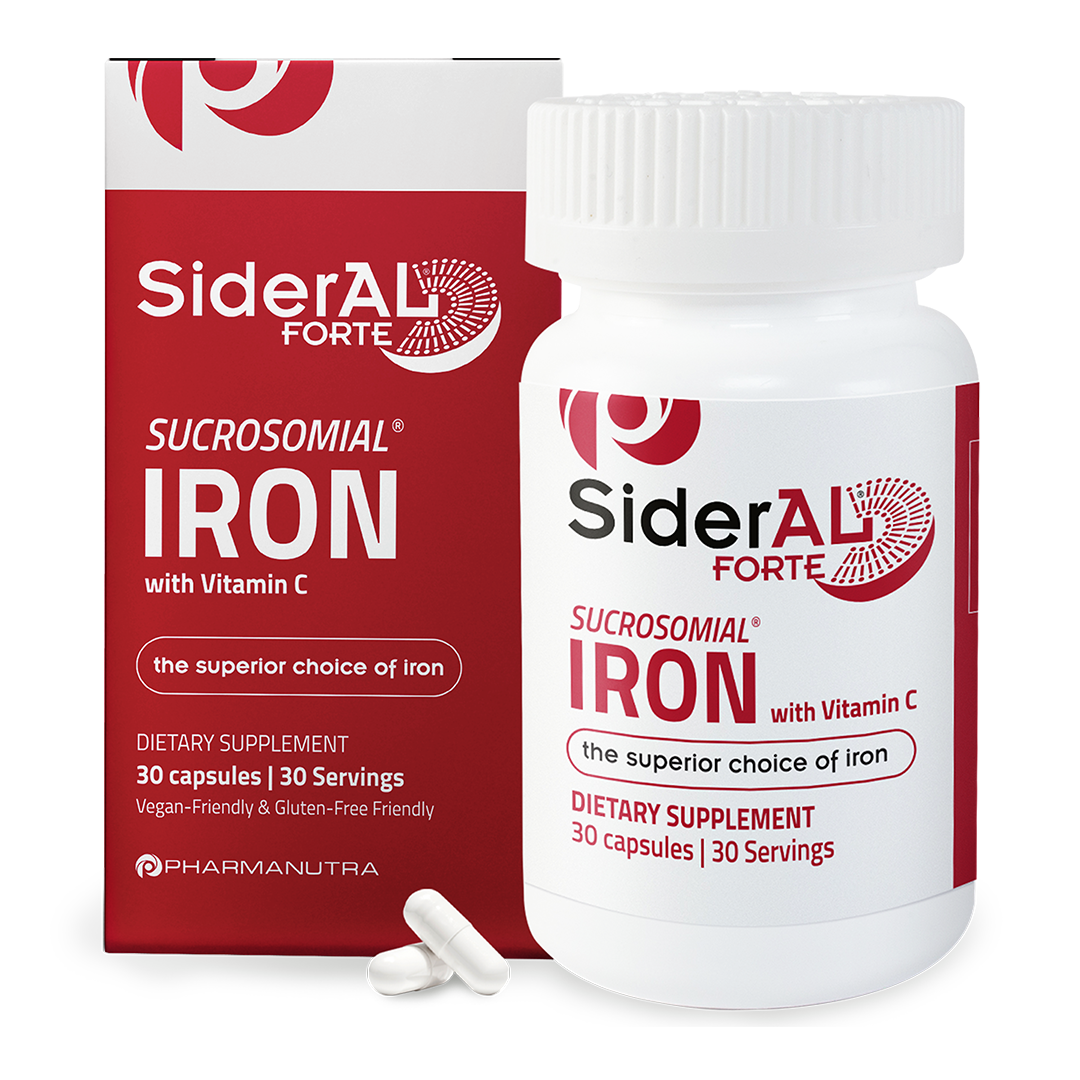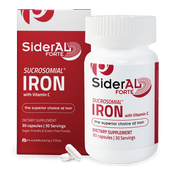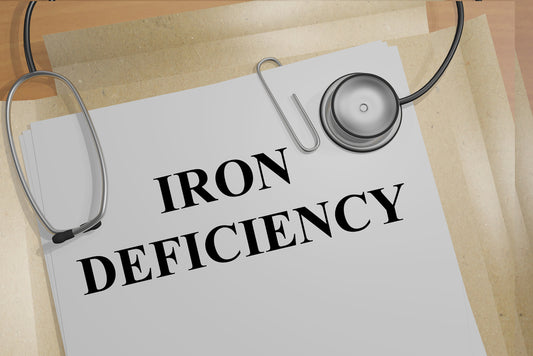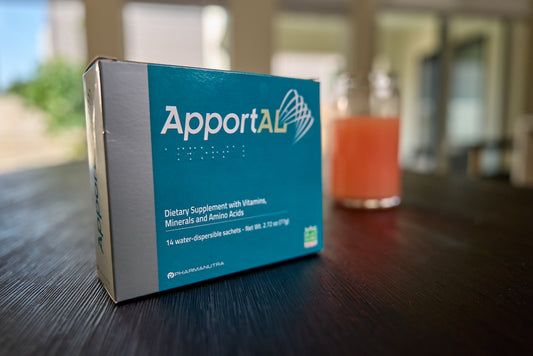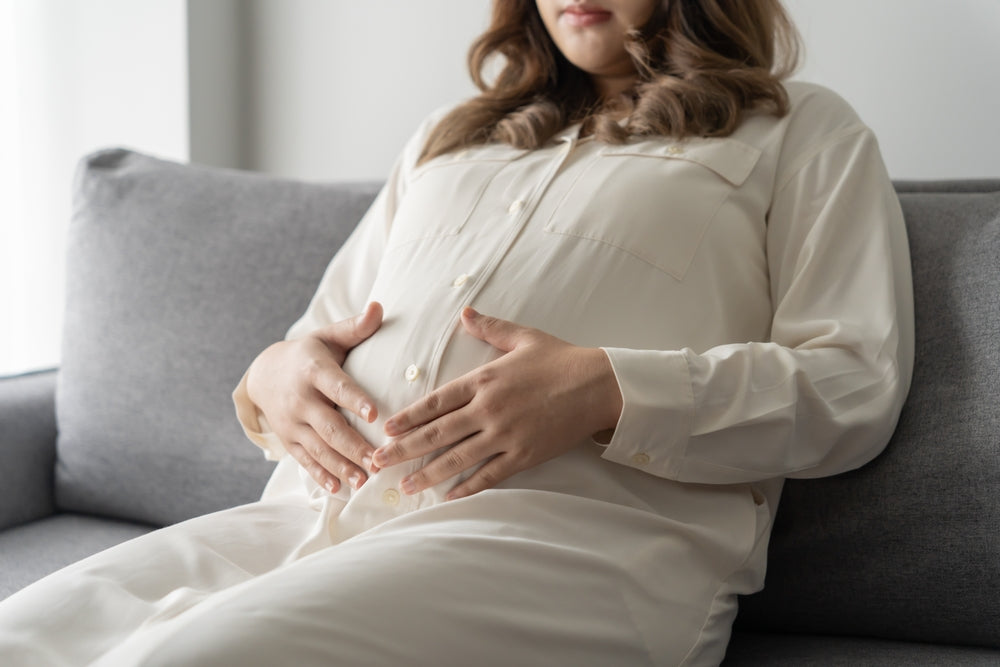
Iron Deficiency in Pregnancy: Causes, Risks, and What to Do
Iron deficiency is the most common cause of anemia during pregnancy. Anemia occurs when the body doesn’t produce enough hemoglobin, the protein in red blood cells that carries oxygen from the lungs to the rest of the body. When it comes to iron deficiency anemia, your body does not have enough iron in the body, which helps make red blood cells. To help you learn more about iron deficiency in pregnancy and what to look out for, we’ve created a guide with everything you need to know, including causes, risks, and how to treat it.
What Causes Iron Deficiency in Pregnancy?
You may be wondering what causes iron deficiency in pregnancy and why it’s more common in pregnant women. We’re here to tell you! During pregnancy, the volume of blood in your body increases, and so does the amount of iron you need. If you don’t get enough iron, you can develop iron deficiency. Iron deficiency is common during pregnancy, but severe anemia is not typical. Women who tend to be at a higher risk for iron deficiency during pregnancy are women who are pregnant with multiples, women who experience vomiting due to morning sickness, and women who aren’t consuming enough iron in their diets.
What Are the Risks of Iron Deficiency While Pregnant?

Both mild and severe cases of iron deficiency in pregnancy require treatment. This is important to protect the health of both the mom and the baby. A developing fetus relies on the mother to get enough iron, vitamin B12, and folic acid. Iron deficiency anemia can affect the growth of the fetus, increasing the risk of a premature or low-weight baby. It’s also associated with postpartum depression.
If you have an iron deficiency during pregnancy, you may feel fatigue, weakness, headaches, pale or yellowish skin, shortness of breath, or craving or chewing ice. Symptoms of more severe cases of anemia include a rapid heartbeat, low blood pressure, and trouble concentrating.
What to Do if You Have an Iron Deficiency While Pregnant
It’s important to treat your iron deficiency during pregnancy. Some simple things you can do is incorporate more iron-rich foods into your diet, like meat, eggs, dried beans, and greens, take a prenatal vitamin, and start taking an iron supplement. Don’t settle for just an ordinary iron supplement, however. Turn to SiderAL® — your exclusive new answer to overcome iron deficiency. It contains Sucrosomial® Iron, which passes through the stomach and is absorbed directly into the intestine. This leads to better absorption and better tolerability. You’re able to avoid any discomfort that is commonly associated with iron intake, which is especially helpful during pregnancy.
SiderAL® Folic is the first mouth-dispersible Sucrosomial® Iron. It’s the perfect solution for women during pregnancy! Not only does it help you meet your iron requirements, but it contains vitamin C, vitamin D, vitamins B12 and B6, as well as Quatrefolic® (the active form of folic acid), which contribute to normal energy-yielding metabolism and reduced fatigue. Our Sucrosomial® technology helps transport, protect, and facilitate the absorption of orally administered iron into the body.
Learn More About SiderAL®
In addition to SiderAL® Folic, which comes in orosoluble sticks, we also have SiderAL® Forte, which comes in capsules. SiderAL® Forte is a supplement based on Sucrosomial® Iron and vitamin C, and it can be useful in addressing nutritional deficiencies. Like SiderAL® Folic, it is absorbed directly in the intestine, allowing you to avoid irritation and discomfort in the stomach. When you’re looking for an effective and simple treatment for iron deficiency in pregnancy, look no further than our SiderAL® products.
Learn more about SiderAL® and get ready to say goodbye to your iron deficiency!
